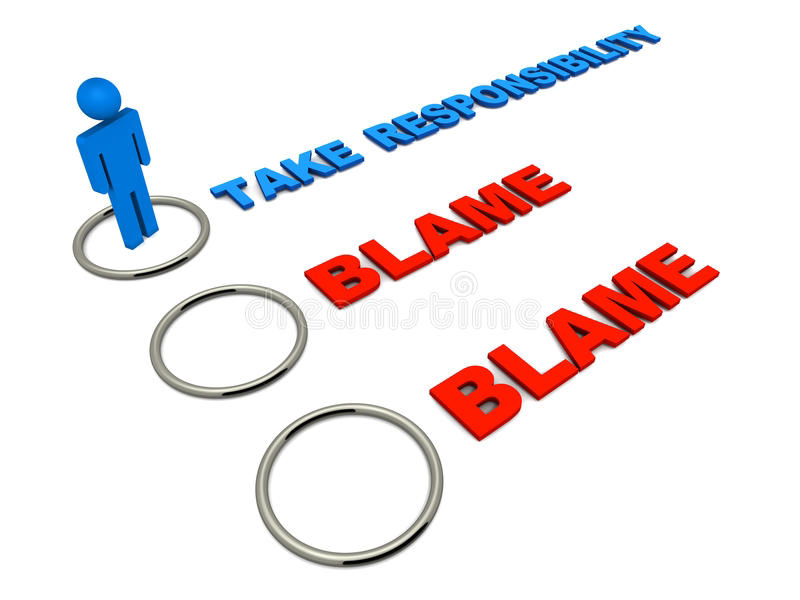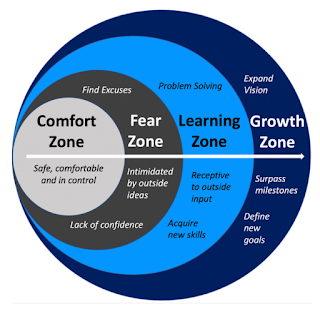THE RESPONSIBLE ATTITUDE
The speed of a man's life journey can be measured by the actions he takes. Things do not just happen out of the blues - they are the end results of human actions. One of the reasons why countries, companies, institutions, families and other relationships suffer setback and major crisis, is due to the ability of the leaders to take responsibility for actions taken. The "I-don't-care" syndrome has eaten so deep into the fabric of people's mentality that it now sounds abused to own up for one's mistakes.
Personally, I have found myself in various situations which have taught me to take responsibility as a leader. One of these experiences happened early this year, while I was a JUPEB student at Educational Advancement Center (EAC). It was on a Friday, around 2:30pm. We were supposed to have a class on CRS, so our teacher called me and gave me the responsibility of coordinating my classmates to make a research on the topic he was to teach, prior to the time he would come to the class. My classmates, however weren't motivated enough to do the assignment as there we various distractions around the class. So, I left them and did the research on my own.
When our teacher arrived, he was disappointed that the class had not carried out his instructions. But more importantly, he was disappointed that I could not handle the class as I ought to as the class representative. In my defense, I tried to give excuses of their nonchalant attitude and even attempted to mention the names of those who had been disturbing the class. At that point, my teacher looked up at me and told me something I have always regarded as a rare nugget. He said, "Goodluck, anytime you fail at something and are being corrected, learn to take responsibility for that error immediately, rather than make excuses. Because excuses do not make leaders; responsibility does."
Of a truth, only great leaders understand the principle of taking responsibility. One of the easiest ways to know a leader who is on the dwindling side is if he or she is quick to pass or apportion blames. As George Washington said, "Ninety-nine percent of all failures come from people who have a habit of making excuses."
"But what do I stand to gain by imbibing the culture of taking responsibility?", you might ask. I haven't lived for so long as so, cannot give all answers (even people who have lived long can't, so....). But I have learnt of three grand benefits of taking responsibility, which I would share with you.
1. TAKING RESPONSIBILITY BUILDS PEOPLE'S TRUST IN YOU
Sounds basic, huh? Yeah. But as it is, many young leaders (and even some old leaders) have not identified this importance. One good thing about taking responsibility makes people trust you more. It is, in fact a sign of maturity as well as a branch of accountability.
As a natural trait, many people, especially youths, tend to avoid people who are fond of passing blames to others. It gets worse when such person is the leader of a team, however small. Every leader who desires the trust of his followers must learn to be responsible for his actions and those of his team members as well. That is what makes a leader. As Nina Easton said, "Great leaders don't rush to blame. They instinctively look for solutions." This does not suggest the negativity of correcting team members, as lack of corrections might also depict a weak leader. But recognizing the thin line between spreading guiding hands and pointing accusing fingers, makes the distinction between the ordinary and exceptional leader.
2. TAKING RESPONSIBILITY OPENS YOU UP TO LEARN FROM PAST MISTAKES
John Burroughs once said, "A man can fail many times, but he isn't a failure until he begins to blame somebody else." As humans, mistakes are inevitable to us. They are an essential part of growth. But we miss the essence of mistakes when we do not make use of them as a source of experience to guide us. Taking responsibility for your actions means you are giving yourself the chance to learn from your own error.
During my tenure as the head girl in my secondary school, I had a tough time enforcing the "no-noise" among the SS1 students. For the first three weeks, it was a herculean task to the keep the last floor quiet. Soon I discovered the students were being deliberate with the noise, in defiance to me. This attitude stemmed from resentment due to the way I had treated a particular class while i was still an interim prefect. Rather than blame the class for provoking me that day (which they did, actually), I decided to make amends which I did by giving an open apology to the entire students, right in their class. The results was almost immediate. They started cautioning themselves each time there was noise on that block and with time, I didn't have to go down there to ensure serenity.
Roberts Anthony said, "When you put the blame on others, you give up your power to change." You can reserve the rich reservoir of wisdom which errors form, only by taking responsibility.
3. TAKING RESPONSIBILITY HELPS YOU TO MAKE BETTER DECISIONS
A leader who has not learned to take responsibility for his actions would make more bad decisions than good ones. This is because passing blames is itself, a bad decision. When things go wrong on the team and all the leader does is point out who didn't do what, chances are high that the decision he will make to rectify the problem will be a bad one. And as Albert Einstein rightly puts it, "You cannot keep doing the same thing and expect different results." So, such leader would only find he and his team moving about in circle, as in the biblical Kadesh Banea.
We cannot always be in the right of things. As leadership coach, John C. Maxwell wrote in his book, The Slight Edge, "If you are always at the top of your class, it could mean that you are in the wrong class!" Life doesn't always give us the good side of our decisions. But great leaders learn from their errors. They do this by going through what I call the "pause-reflect-analyse" process.
Pause - and take a step backwards.
Reflect - on actions that preceded the problem.
Analyze - the decisions that led to those actions.
I have learnt to work through these three processes in dealing with problems, rather than passing blames around. I hope they work for you too, as well as other benefits mentioned earlier in this piece. Remember, only responsible leaders build responsive teams.






Thanks a lot for this
ReplyDeleteKudos
More grace ma